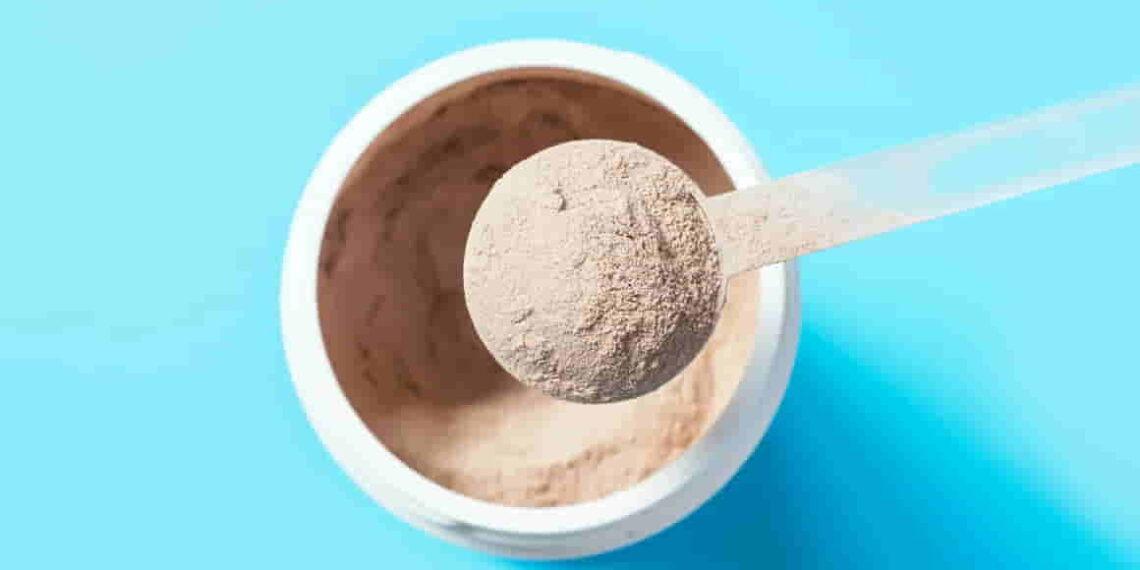Lead and Cadmium Found in Muscle-Building Protein Powders: Investigation Reveals Disturbing Levels
Recent investigations have revealed alarming levels of lead and cadmium in over-the-counter protein powders, with the highest concentrations found in plant-based, organic, and chocolate-flavored products. According to the US Environmental Protection Agency (EPA), there is no safe level of lead for humans, while cadmium, a known carcinogen, poses significant risks to the heart, kidneys, gut, brain, and reproductive systems.
The Clean Label Project, a nonprofit focused on food transparency, released the findings on Thursday, highlighting how organic protein powders contained three times more lead and twice the amount of cadmium compared to non-organic options. Additionally, plant-based protein powders (such as those made from soy, rice, and peas) contained three times more lead than whey-based products, which are derived from cheese production.
The Source of Contamination: Plants and Chocolate Flavors
Plants naturally absorb heavy metals from the earth, but contamination can worsen when grown in soil polluted by mining, industrial waste, or certain fertilizers and pesticides. The investigation also identified chocolate flavoring as a key source of contamination, with chocolate-flavored protein powders containing up to four times more lead and up to 110 times more cadmium than vanilla-flavored ones. A recent study showed that 43% of dark chocolate products exceeded California’s allowable lead levels, further confirming the heavy metal risks.
Jaclyn Bowen, Executive Director of the Clean Label Project, emphasized that heavy metal contamination in food is a global issue and is particularly prevalent in products marketed as healthy, including protein powders.
Industry Pushback: Concerns About Testing and Criteria
The Council for Responsible Nutrition, an industry group representing supplement manufacturers, criticized the investigation for lacking transparency regarding contamination thresholds and testing criteria. Andrea Wong, CRN’s Senior VP of Scientific and Regulatory Affairs, argued that trace amounts of heavy metals naturally present in the environment may not necessarily pose health risks, as they often fall below federal safety limits.
Investigative Methodology: 160 Products Tested for Contaminants
For the investigation, Clean Label purchased 160 protein powder products from 70 leading brands, which were tested in an independent laboratory for over 35,000 contaminants, including heavy metals, bisphenols (such as BPA and BPS), and perfluoroalkyl substances (PFAS). The 2024 report focused on lead, cadmium, BPA, and BPS contamination levels. A prior investigation in 2018 revealed high levels of bisphenols, but the 2024 results showed a significant improvement: only three out of 160 protein powders tested contained BPA or BPS, a sharp drop from 55% of products in 2018.
Lead and Cadmium Levels Exceeding Safety Standards
In the 2024 report, nearly half (47%) of the protein powders tested exceeded California’s Proposition 65 guidelines for lead. Of those, 21% contained levels double the Prop 65 limit. The highest contamination was found in plant-based and organic protein powders, with about 80% of these products exceeding lead safety thresholds. On the other hand, only 26% of collagen-based and 28% of whey-based products surpassed the limit.
What Consumers Can Do to Protect Themselves
Despite the concerning findings, Bowen stressed that protein powders can still be part of a healthy lifestyle, but consumers need to make informed choices. For individuals following a plant-based diet, pea protein powders tend to have the lowest levels of heavy metals. For those without dietary restrictions, whey-based or egg-based, vanilla-flavored protein powders are generally the safest options.
Consumers should also consider reaching out to their preferred brands to inquire about contaminant levels. Bowen encouraged shoppers to “ask questions, demand answers,” noting that the issue of heavy metals in food products is not going away anytime soon.
By shopping wisely and staying informed, consumers can make healthier choices and help reduce their exposure to harmful contaminants in protein powders.
This article was rewritten by JournosNews.com based on verified reporting from trusted sources. The content has been independently reviewed, fact-checked, and edited for accuracy, neutrality, tone, and global readability in accordance with Google News and AdSense standards.
All opinions, quotes, or statements from contributors, experts, or sourced organizations do not necessarily reflect the views of JournosNews.com. JournosNews.com maintains full editorial independence from any external funders, sponsors, or organizations.
Stay informed with JournosNews.com — your trusted source for verified global reporting and in-depth analysis. Follow us on Google News, BlueSky, and X for real-time updates.













